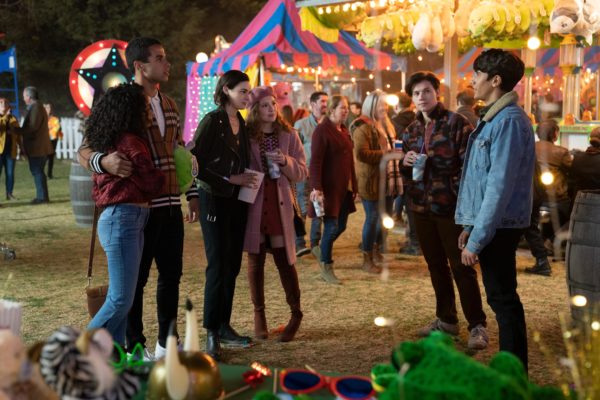
Joe and Terry review the back half of the final season of Hulu/Disney+’s Love, Victor.
Spoilers for episode 3.05-3.08 follow…
Missed a Review?
- S01 Episodes 1-5
- S01 Episodes 6-10 (on Gayly Dreadful)
- S02 Episode 1-5
- S02 Episodes 6-10 (On Gayly Dreadful)
- S03 Episodes 1-4 (On Gayly Dreadful)
JOE
Well Terry, this isn’t how I was hoping that we’d close our three years of coverage of Love, Victor. The show that felt so inspiring and full of promise in S01, warts and all, found its footing in S02 with a messy coming out story involving Victor (Michael Cimino) and his mother Isabel (Ana Ortiz).
In the first half of its third and final season, the storytelling stalled as characters were paired up and isolated. More upsettingly, the nuance and complexity of that S02 growth was entirely absent. We hoped something would shift in this back half, but if anything, Isaac Aptaker & Elizabeth Berger and their creative team have doubled down on the conflict-free fantasy of Creekwood High to tell what is ultimately a pretty bland, and not especially queer, YA story.
Don’t get me wrong: there’s nothing especially wrong or problematic about these last four episodes. They’re aggressively fine, but they’re certainly not challenging, groundbreaking or even particularly satisfying. They’re safe and predictable, which isn’t something we never would have said when the show was at its peak back in S02.
Perhaps it’s unfair to critique the show for leaning into its escapist fantasy. In our review of the first half of the season, we grappled with the show’s legacy in comparison to the candy coloured juggernaut that is Netflix’s Heartstopper, which is both a similar and altogether different kind of heartwarming queer narrative. Love, Victor is more grounded and realistic than its UK counterpart; it’s also more mature, so much so that Disney+ hilariously shipped the series off to Hulu in its first two years (because, yes prudes, these characters drink and have sex).
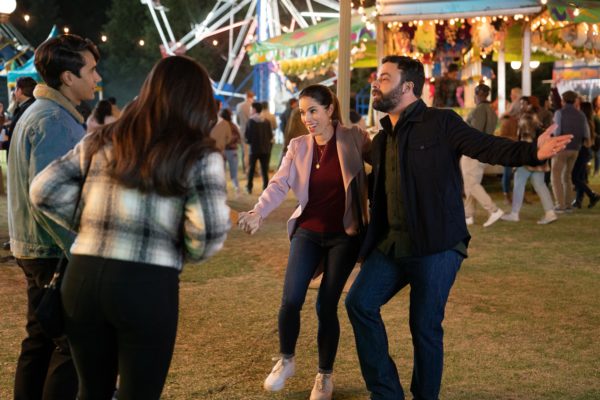
Love, Victor has always been an outlet for more complex narratives. That’s why the retreat into bland, conventional romances and ridiculously unrealistic storylines has been so disappointing in S03 (both Rachel Hilson’s Mia and Ava Capri’s Lucy effectively emancipate themselves from their parents to go live at the house owned by Bebe Wood’s Lake?! As if!).
If I had any hope for more challenging stories, it dissipated the moment that Victor rebounded from his break-up with Benji (George Sear) to go directly into a relationship with Nick (Nico Greetham). Not only is Nick styled exactly like Benji, effectively making him a sub-par stand-in for Victor’s one true love, there’s nothing new to explore in this relationship. Nick is an exceptionally boring character aside from his ties to the Church and his “bad boy” hook-ups, so transforming him into bland-o boyfriend 2.0 is the least interesting thing the writers could do. It’s like watching a gay hamster wheel spin (or perhaps a better analogy would be a Ferris Wheel? <groan>)
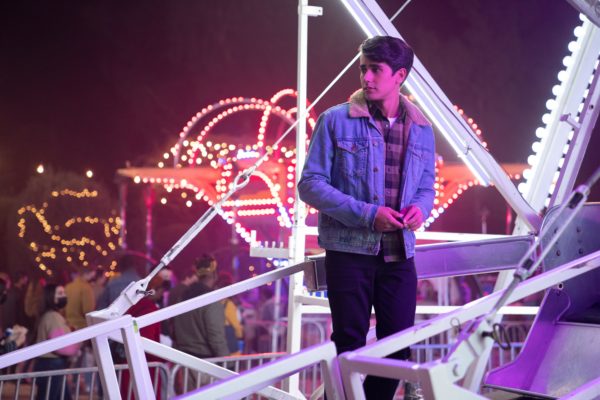
It is these kinds of unexciting and unadventurous decisions that permeate the entirety of the back half of the season. Rather than force Lucy and Lake to deal with Lucy’s extremely real issues about her family’s trauma (which Lake has seemingly never bothered to ask about?), the couple breaks up for an episode and then Lake moves Lucy into her mother’s unused apartment? Ummm ok.
Ditto with the way Pilar (Isabella Ferreira) reacts to Felix (Anthony Turpel) in this back half. Terry, we just spent a bunch of digital ink praising the show’s wise decision to give the talented Ferrerira more to do this season, but I didn’t anticipate her added screen time would revolve around pressuring Felix into sex, then breaking up with him when he sides with the surrogate parents who literally took him in during his mother (Betsy Brandt)’s mental health crisis.
Pilar doesn’t react like the character we’ve come to know. It completely undercuts any sympathy the audience has for her and…for what? She and Felix also break up, but – just like Lake and Lucy – all is forgiven in time for the Winter Carnival.
Time and time again we’re confronted with either uninspired storylines or badly written character drama for drama’s sake. The outcome is always predictable, though: all roads lead to a happy, carefree and completely safe reunion. I cannot believe that this series ends with LITERALLY. EVERY. CHARACTER, including Nick and random character Liam, winding up in a happy, monogamous couple.
I understand that this is fantasy, and maybe this is the happy ending that queer and young audiences need in light of the horrific anti-LGBTQIA legislation and pervasive school shootings, but it feels completely inconsistent with the show’s earlier seasons.
Sure, give us Victor and Benji together on the damn Ferris Wheel if you must, but why not have Mia have the balls to tell Andrew (Mason Gooding) that he can’t fuck up his basketball career for a long distance high school romance. Have Lucy move away because she’s only been dating Lake for two weeks!! And where the hell is my juicy Rahim (Anthony Keyvan) storyline? Because that double date wasn’t enough for the show’s break-out star!
Terry, am I just a major grouch or did you struggle with this milquetoast storytelling, too? Were there any back of season storylines that clicked for you? And can we at least agree that Victor’s Bravery award speech is worthy of applause (and maybe a tear or two)?
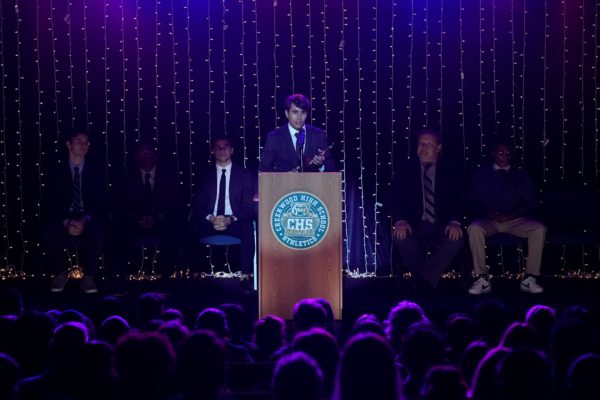
TERRY
Joe, if there’s one thing that I have to praise, support and, yes, maybe get a little teary-eyed at, it’s the way the writers handle Victor’s Bravery Award. The storyline centered on whether Victor will accept the award and Rahim’s frustration that, given the chance for recognition of quiet excellence, Victor is rather nonchalant.
I completely sided with Victor’s perspective in the beginning. If you’ve read my writing or listened to my podcasts, you probably know that I’m still unpacking a fair share of queer trauma over multiple decades. For the longest time, I didn’t want to be “the gay best friend” or “the brave one” for coming out or a million of these platitudes that separate my queerness from my body and successes.
So I get Victor’s hesitancy because for the longest time, I found that I could fake my way as a straight man. And any time I came out to someone new, it was a complete and exhausting chore.
But I didn’t have the same life experiences as Rahim, who’s forced into the closet whenever a religious member of his family shows up. His whole life is authentically queer while Victor has had very few problems outside of some locker room homophobia in season 2. Victor comes from a place of relative privilege because he doesn’t have to dwell on his sexuality. Contrast this with the more fey, snarky and impressively dressed Rahim, who isn’t able to code-switch.
When Victor finally gives the speech, recognizing his privilege and the importance for the world to see people like him, it moved me. This is the kind thing Love, Victor does so well…when it actually does it. Unfortunately, moments like this are few and far between this season.
Side note: I completely forgot that Victor was still playing basketball until this moment.
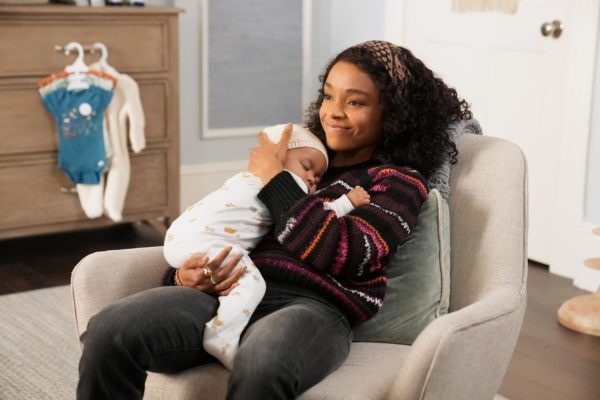
I think, ultimately, why this season didn’t work for me is that it ignores the very clear class and racial dynamics the show began with, in favor of, as you said, milquetoast storytelling. For me, it isn’t so much that the show gives everyone a happy ending. It’s that it’s so frivolous in the way it doles out these endings, as if these aren’t people but characters.
I was aghast that the way the show ended Lake and Lucy’s relationship is not with an understanding that sometimes you’re two ships passing in the night, but that Lake’s white, rich and famous mother’s apartment saves the day. It’s not love or perseverance or anything complex that comes to the young lovers’ rescue: it’s money.
Contrast that with how the show began, with Victor navigating sexuality, race, his parents’ rocky relationship and money. It’s as if it’s a different show.
Season three really leaned into how privileged these children of rich people are. Aside from Victor and Felix, everyone else lives in literal mansions and while that was an intriguing point of contrast in the first season, now it’s just background decoration…until it swoops in to solve everyone’s problems.
Don’t worry, Andrew will just fly out to see Mia constantly (in this economy?). Lucy will live as a pseudo kept woman in a luxurious apartment to herself. Armando randomly quit his job, but his and Isabel’s money woes are over simply by starting their own business.
There’s too much hand-waving going on, to the point that I’m not sure what the problem is. Regardless of what was reported in the press, it’s like the writers either didn’t know where to go with the story…or they didn’t expect to be canceled in season three and had to somehow give viewers some kind of ending.
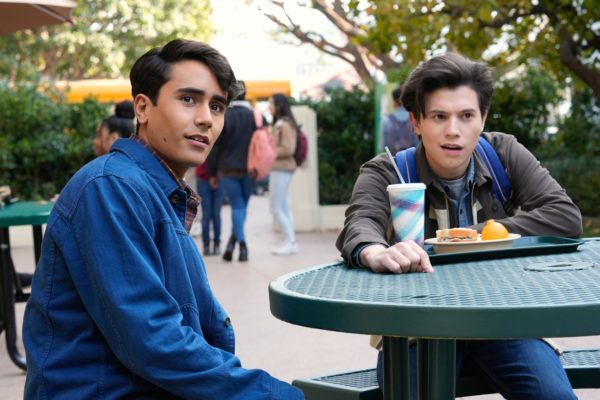
You asked whether any of the scenarios or storylines clicked with me in the back half and unfortunately…not really. My feelings from the first half continued into the second, where individual scenes and character beats made me laugh, but the storytelling did not. For example, I loved any interaction that put Felix and Victor together. Victor realizing that Liam was a closeted kid, for instance, “Oh he’s not a dick…he just wants dick!” is a funny aside from Felix. And when Victor decides he could be a Simon to him, Felix follows up with, “oh yeah, Simon…whatever happened to that guy?”
The only storyline that was intriguing for me was the family drama with Rahim. You mentioned wanting a juicy Rahim storyline and the few times we did get some insight into Rahim’s life, I kept thinking, “I want a Love, Rahim” show. The more Rahim we got, the more I realized how bland Victor and co. had become.
Ugh, I’m just disappointed, Joe. This was honestly one of my most anticipated shows this year because of how much fun I had with the previous two seasons. I take your point that Heartstopper is more of a heartwarming queer narrative, but it does still tackle adult themes of sexual assault, closeted love, wanting to be seen, and more. The Netflix series feels more authentic and that authenticity highlighted a lot of Love, Victor’s problems this season.
To be clear: I’m not trying to put two queer shows in a ring to duke it out so that one emerges victorious. I just wanted Love, Victor to be authentic to itself and this season just ain’t it, sis.
This season should have been a good send off for this likable group of misfits. And while there are some moment-to-moment bits that speak to the quality of writing that worked in seasons one and two, it just felt disjointed and sadly inert, almost as if the creators or writers gave up. And that, more than anything else, makes me sad. This season, unfortunately, is a C for me. It hurts me to say that…but here we are.
Take this home, Joe. Any last, lingering thoughts on this final season? Did any of the back half resonate with you the way the previous two seasons did? And what is your grade for this final season?
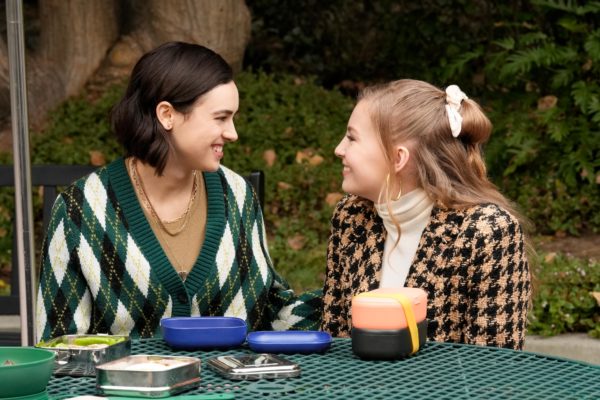
JOE
Sadly no, Terry, this just doesn’t click for me.
Like you, I still love these characters and actors and I really wanted so much more for them. But aside from the occasional line of dialogue or emotional beat such as Mia’s realization that she wants to be with her new step-brother (proving Hilson deserves much bigger things), everything felt too rushed and too desperate to wrap everything up in a neat, perfect bow.
Your observations about class hits the nail on the head and gets to the crux of many of my issues (more succinctly than my rambling, too). Reading your response just wound up making me even more frustrated because it’s so true that the whole show was founded on the idea that Victor and Felix are poor. For Armando and Isabel to simply hand wave away his job loss and start a business is as unrealistic as the idea that Benji could simply walk away from boarding school at the drop of a hat. ARGH.
It’s still unclear whether this season is what Aptaker & Berger truly planned for the show and some viewers will attribute the bumpiness of the season to that. We don’t know if they had more seasons mapped out that had to be scrapped when the series got the axe, or if S03 was always going to be the show’s natural end. The reality is that this is what we got and the end result is more than a bit of a mess.
Ultimately that means Love, Victor ends its run on a sour, unsatisfying note. My rating is also a C.
The entirety of Love, Victor is now available on Disney+